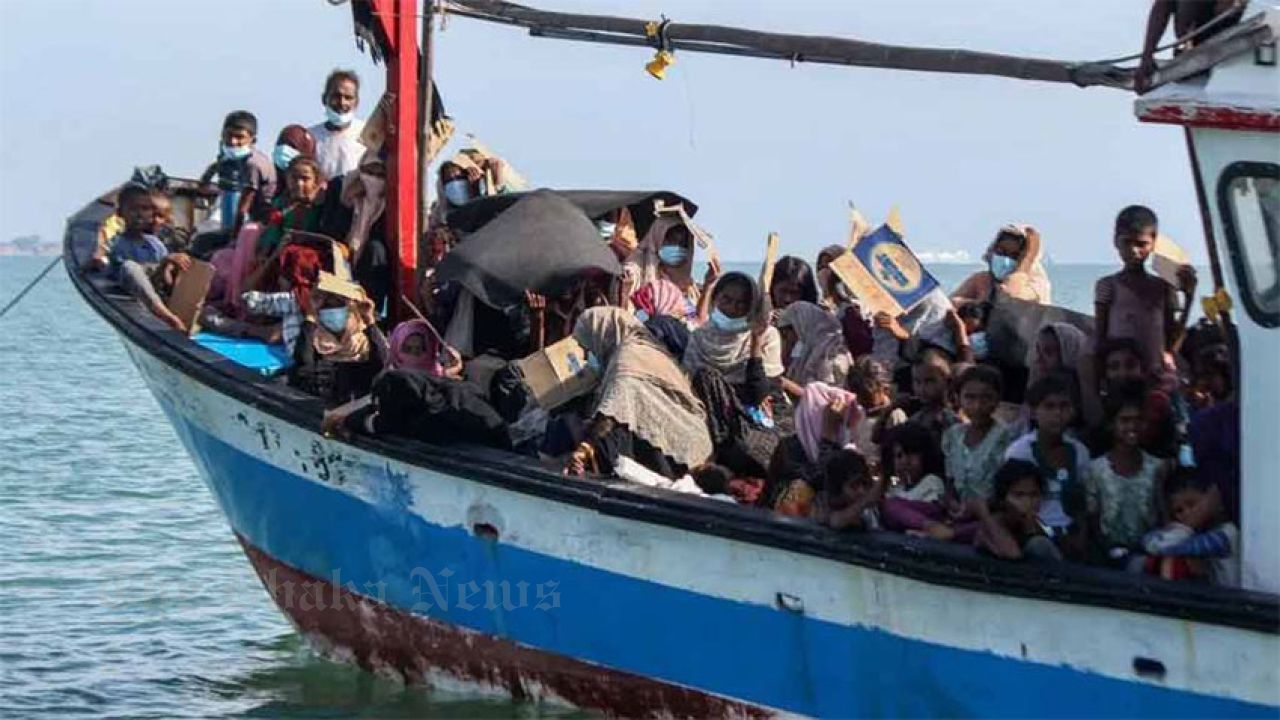.png)
.png)
Forty Rohingya refugees have alleged that India is dumping members of Myanmar's oppressed Rohingya people into the sea on a naval ship. They claim that they were detained in the capital Delhi and dumped into the sea on a naval ship.
In such a situation, these Rohingya refugees are once again facing an uncertain future amid Myanmar's terrible civil war. The United Nations says that India has put the lives of the Rohingya at "extreme risk." The British media outlet BBC reported this information in a report on Friday (August 29).
The media outlet says that Nurul Amin last spoke to his brother on May 9. The phone call was brief, but it brought terrible news. He learned that his brother Khairul and four other family members had been sent back to Myanmar by the Indian government. They had originally fled that country many years ago in fear of their lives.
Myanmar is currently in the midst of a terrible civil war, with ethnic groups and resistance forces fighting against the junta that seized power in 2021 through a military coup. In such a situation, the possibility of Amin being reunited with his family is practically non-existent.
“I couldn’t even imagine the pain my parents and relatives are going through,” said 24-year-old Amin, sitting in Delhi.
The BBC reports that the Rohingya were found in Myanmar three months after their evacuation from Delhi. Most of the Rohingya have taken refuge with the Bahtu Army (BHA), a resistance group fighting against the junta’s troops in southwestern Myanmar.
“We are not safe here. The whole area is like a war zone,” Syed Noor said in a video call. He was with six other Rohingya in the wooden shelter.
The BBC has reconstructed the sequence of events by gathering information, expert investigations and statements from the refugees and their relatives in Delhi.
According to the information, they were taken by plane from Delhi to an island in the Bay of Bengal. From there, they were taken to a navy ship and eventually dumped in the Andaman Sea, although they were given life jackets. They later swam to shore. Now they face an uncertain future in Myanmar, a country where many Rohingya Muslims have fled persecution in recent years.
A Rohingya named John told his brother on the phone, “We were taken to a ship like prisoners, with our hands tied, our eyes and faces covered. Then we were thrown into the sea.”
Expressing his anger, Nurul Amin said, “How can people be thrown into the sea like this? Humanity is still alive on earth, but I have not seen any humanity in the Indian government.”
Thomas Andrews, the UN special rapporteur on the human rights situation in Myanmar, said he had “significant information” to prove the allegations. He has also submitted evidence to the head of India’s mission in Geneva, but has not received a response.
The BBC has also contacted India’s foreign ministry several times, but has not received a response.
The situation for the Rohingya in India is already precarious. The country does not recognize them as refugees; instead, it labels them as “illegal immigrants.” Currently, about 23,800 Rohingya in India are registered with the UN refugee agency UNHCR, but Human Rights Watch estimates the actual number is more than 40,000.
After a brutal military campaign in Myanmar in 2017, millions of Rohingya fled to Bangladesh. Today, there are more than a million Rohingya in Bangladesh.
The BBC says that on May 6 this year, 40 Rohingya living in different parts of Delhi were summoned to a local police station. They were told that their photos and fingerprints would be collected as per government regulations. After waiting for hours, they were taken to the city’s Inderlok detention center.
Amin said that at that time, his brother called to tell them that they were being taken to Myanmar and asked them to get help from a lawyer and inform the UNHCR. Then, on May 7, they were sent from Hindon Airport to the Andaman and Nicobar Islands. Once there, they were taken by bus. The buses were marked “Indian Navy”.
Syed Noor said, “As soon as we got on the bus, our hands were tied with plastic and our faces were covered with black cloth.” Within a short time, they were taken to a navy ship. They were on the large warship for about 14 hours. They were fed rice, dal and cheese.
But during this time, many were beaten and insulted. Syed Noor says, “They treated us very badly. Some were slapped repeatedly, many were beaten.”
In a video call, Fayaz Ullah showed the injury marks on his hands. He said he was punched, slapped, and poked with a bamboo stick. He was asked, “Why did you come to India illegally?”
Out of the 40, 15 were Christian Rohingya. Noor claims that they were asked why they left Islam and converted to Christianity, why they did not become Hindus. They were even checked to see if they had been circumcised.
One of them was even accused of being involved in the Pahalgam attack in Kashmir. However, there is no evidence of any connection between the incident and the Rohingya.
Then on the evening of May 8, they were forced into small rubber boats and put out to sea. They were given life jackets. They were told that they had reached Indonesia. But in fact, they were in Myanmar.
Then, on the morning of May 9, local fishermen found them. The fishermen let them use their phones, from where they informed their relatives in India. Since then, the Bahtu Army has been providing food and shelter to the Rohingya. But the families in India are terrified about their fate.
The United Nations has said that India is “destroying” the lives of the Rohingya by dumping them in the Andaman Sea.
Tags : India
.png)
বৃহস্পতিবার, ০৪ সেপ্টেম্বর ২০২৫
Published : ২৯ আগস্ট ২০২৫

.png)
Stay connected with The Dhaka News